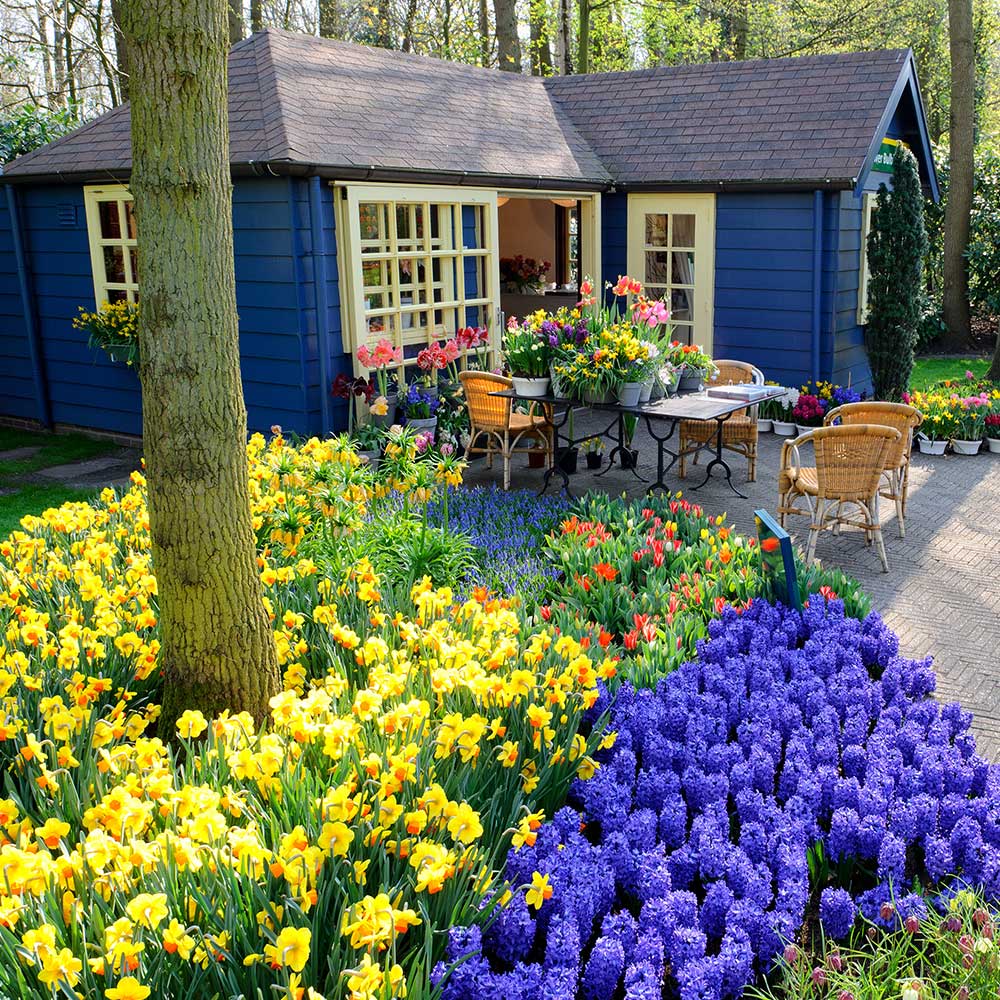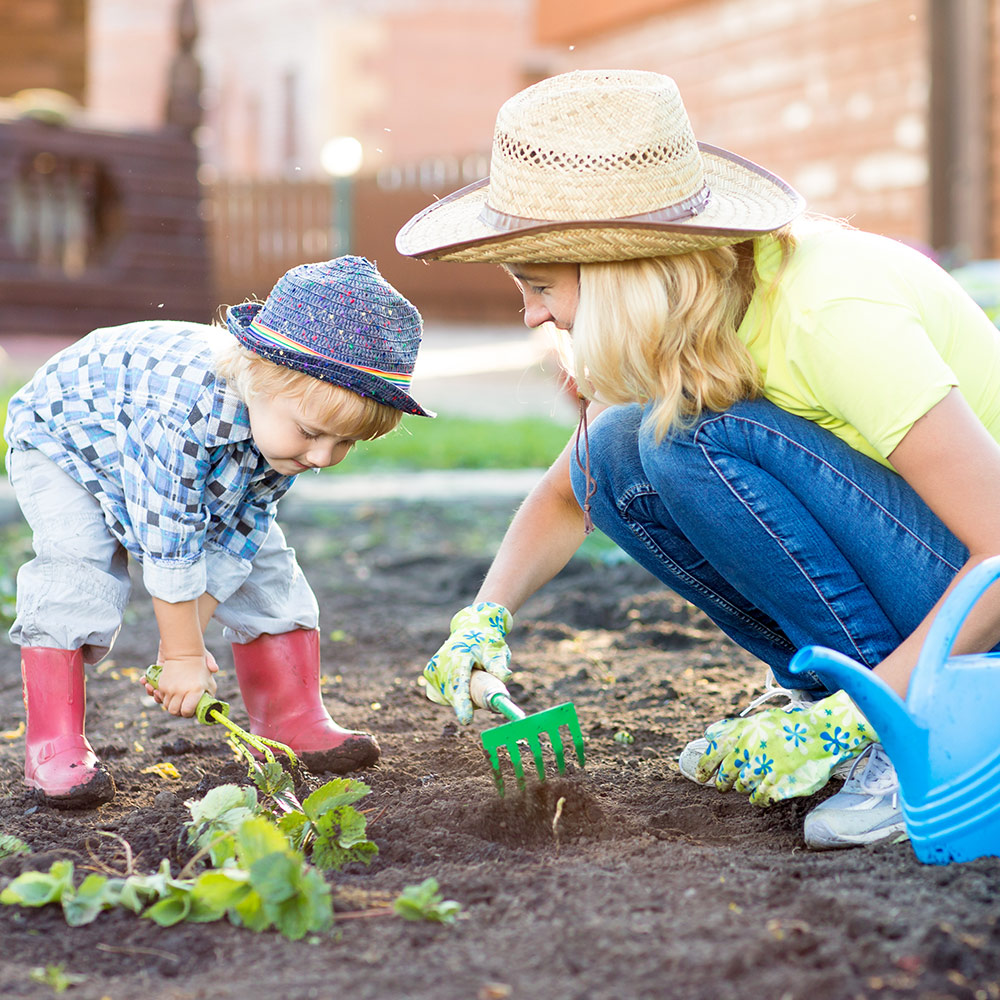
Do you have what you need to make your garden grow?


Garden Center
Shop Outdoor and Garden Supplies Near You
Shop Plants Online
The Home Depot Garden Center at Baton Rouge
The Home Depot's Spring Black Friday Sale
Find some of the best bargains of the season with our Spring Black Friday sale. Level up your backyard or patio with patio furniture to fit any decor style. Spring cleaning applies both inside and outside your home, so refresh your lawn and garden with gorgeous flowers. Remember to check out our outdoor power equipment, as well. Get it all done when you save during our spring sale, which runs only from April 4th through 28th. Don't miss these discounts.
Gardening Sale for Mother's Day
When you're searching for Mother's Day gardening gifts, check out the great deals on our garden decor, flower pots, and planters. Our Mother's Day Sale is your solution for the right present. You can even surprise her with new patio furniture. If you're overwhelmed about what to get, a gift card is a sure-fire winner. It's easy to shop the sales that run from May 2nd to May 12th on our mobile app or at your local store.
On those beautiful days, clean up the yard before everything blooms in earnest. Many people feel inspired to refresh their outdoor space for entertaining, as well. Planning your garden lets you make the most of your time and space. Remember to measure your garden so you can find fresh mulch near you as soon as it's available. No matter what outdoor projects you choose to tackle, The Home Depot Garden Center in Baton Rouge can help you enjoy your spring activities to the fullest.
Plant Hardiness Zones Explained
The first thing to know when planting spring flowers, vegetables, and other seeds is your planting zone. Every location in the U.S. and its territories is sorted by climate. Find your zone on the USDA zone map and learn when to plant seeds.
For example, you could plant bell pepper seedlings outdoors in mid-March in Zone 10, but not until the end of May in Zone 4. The plants that'll thrive in your area are in your zone, and all the zones numbered less than that. In other words, a Zone 9 garden can support plants listed as Zones 1–9. The timeframe to direct sow outdoors in your garden is often around a month later than the indoor start date. Always read your seed packet for details. If you start them later than recommended, it's not ideal, but it will likely even out as time passes.
Gardening in Your Growing Zone
The Mid-South is in Zones 7–9, with coastal regions being warmest and the zone number decreasing to an 8, then a 7 as you go up in elevation to the foothills of the Georgia mountains. Just check your planting zone, then consult the seed packet for the most accurate instructions for each plant. If you know you're in a micro-climate near a valley, lake, or wetland, zoom in on the USDA planting map for exact details down to street level.
In balmy Zone 9 on the coast, you can begin planning and planting indoors in January if you'd like. Zones 8 and 7 generally have a slightly later recommendation for indoor starts. Cruciferous veggies and garden favorites, like cucumbers, peppers, and tomatoes, all do well when started inside your home. Greens like spinach, artichokes, and fragrant herbs, including oregano, basil, and parsley, also don't mind an early beginning. You can sow flower seeds and watch them mature under the grow lights, too. Whatever you choose to grow, tend them carefully and transplant them when the threat of frost is gone for the season.
Plant Seeds Outside With Direct Sow
Planting seeds with the direct sow method, right into the soil, is another option. There's less planning and tending than growing indoors. If you like to go with the flow, follow the instructions on your seed package and try it out.
Your seeds might get washed away or struggle to grow, or rodents or insects might eat the sprouts. But if you're really lucky, you might get a strong sprout from each place you sowed seeds, perfectly spaced and ready to grow all spring. The reality of your garden will usually be somewhere in between, and spreading out tiny sprouts throughout the soil isn't so bad. You know those sprouts are hardy and primed to survive, although there are no guarantees.
Start Seeds Indoors
If you're eager to get growing or would like more control in the care and feeding of seedlings, start your seeds indoors instead. In general, you can plant seeds indoors about a month before you can do it outside. Like direct sow, you push the seeds into the soil as directed on the seed packet, but that's where the similarities end.
You're responsible for giving them quality substitutes for sunlight and rain. Keep your seeds warm with warming mats and grow lights, water them carefully with a spray bottle or watering can, then thin them as they germinate in groups of three. Give them a boost with a gently blowing fan as they lengthen into sprouts if you'd like. Harden them off to get them used to outdoor conditions, then transplant them into your garden when they're big enough.
Transplant Young Plants Into Their New Homes
Place your transplants in the ground, then give them a generous drink without overwatering. Blanket the surrounding area with mulch, marking where the plant is with a stick so you can easily find it among the grass clippings, old leaves, or straw. Consider putting up chicken wire or other protective measures if rodents or deer visit your yard regularly, as your sprouts may otherwise become a snack.
Protect Your Garden With Mulch
Finish your flower bed with compost and mulch. Mulch controls weeds and keeps the soil moist. Compost enriches the soil so your garden can grow even better. It may help foster stronger plants that bear more flowers and fruit. Compost and mulch can be purchased in-store or created at home. The next time you're looking for "mulch near me," stop by the Garden Center to get the perfect amount.
Greet the Spring
Early spring is an exciting time in the world of gardening. Don't miss a minute of growing season. Plan your garden and landscaping, prepare to fertilize your lawn, and browse our garden center pages to find inspiration on what to plant when the weather warms. Shop for the fertilizer, soil, and seeds you need in the aisles of your Baton Rouge Garden Center, online, or on our mobile app. Let's get growing together.
Shop Outdoor and Garden Brands
Frequently Asked Questions About Gardening
How do I know what planting zone I'm in?
Check the USDA zone map, as planting zones have shifted over the years. Zones with higher numbers can plant earlier in the year. Increase your odds of successful gardening by choosing plants that are meant for your zone.
What's direct sow in gardening?
If the soil isn't frozen or cold, consider planting your flower, veggie, or fruit seeds directly into your garden. This is called the "direct sow" method. The time to plant will be after the threat of frost is gone for the season, as sprouts and seedlings can't weather those conditions. You can also start your seeds indoors if you'd like. Consult your seed envelope for how and when to sow seeds.
How do I plant flower seeds?
Follow the advice on your seed packet. It'll tell you when to start them indoors and when to direct sow. Generally, you'll add several seeds per planting hole, then press them into the soil as directed. Mark where you buried the seeds with a twig, toothpick, or flag so you don't think they're weeds later.
Do I have to harden off my seedlings before planting them outside?
Yes, if you raised plants indoors from seeds, harden them first before you transplant them. Hardening is the process of getting them used to the great outdoors. It slows their growth until they're strong and ready to take off during a spring warm front. Hardening also makes your plants more resilient to a sudden cold snap. Read your seed packets or speak to a garden center associate for more information.
Can I strengthen my seedlings before planting them outdoors?
Get your sprouts used to storms and breezy spring days with a fan and keep fungus from growing in damp conditions. Set up an oscillating floor fan on low to mimic the wind. Just the gentlest breeze for several hours a day will do the trick. The stems and leaves will get used to blowing in the breeze and not snap when a gust comes through. If you don't set up a fan, your seedlings may be more sensitive to strong winds. Try to plant between storms.
Should I use peat moss starters or coir starters?
Seed starters, full of nutrients in pellets or pots, work for new and experienced gardeners. You don't have to use these starters if you're planting in soil, but you may want to. Starting seeds in peat pots works best for delicately rooted plants like cucumbers and eggplant, as well as flowers that require an acidic pH. Some people prefer coir starters instead, as they have a neutral pH. Check what type of soil your plants need to help narrow it down, and chat with a garden center associate if you need more info.
Nearby Stores
8181 Airline Hwy
Baton Rouge, LA 70815
3.88 mi
Store:
Pro Service Desk:
Mon-Sat: 6:00am - 10:00pm
Sun: 8:00am - 8:00pm
18139 Highland Rd
Baton Rouge, LA 70810
5.06 mi
Store:
Pro Service Desk:
Mon-Sat: 6:00am - 10:00pm
Sun: 8:00am - 8:00pm
2255 Home Depot Dr
Denham Springs, LA 70726
7.04 mi
Mon-Sat: 6:00am - 10:00pm
Sun: 8:00am - 8:00pm
)

)

.jpeg?im=Crop,rect=(363.69230769230774,1.2307692307692308,958.7692307692308,958.7692307692308))
)
)
)
)









)
)




)


)
)














































